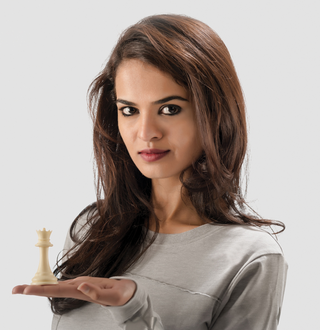Mastering Your Mental Game
One Question for Tania Sachdev
By Jennifer Bleyer published March 7, 2017 - last reviewed on May 2, 2017
Tania Sachdev was introduced to chess at age 6 by her father, who barely knew how the pieces moved and used a rulebook to teach his daughter the game. Sachdev was immediately captivated and now, at 30, holds the titles of International Master and Woman Grandmaster. She plays in tournaments around the world and is the third-highest-ranked female player in India, where she lives.
How are the qualities you've developed via chess reflected in your daily life?

I was a hyperactive kid, and chess was the only thing that kept me in place for hours. It's like a gymnasium for the brain. I found it so fun and interesting to keep control over myself and try to outsmart my opponent. The human mind always wants to go in 500 directions at once. You have to cultivate mental stamina to keep that concentration going.
Now I think chess helps me in all spheres of life. Every move you make has a consequence for which you have to take responsibility, and you always have to choose from among multiple options. I think chess has strengthened all these mental abilities for me. Whenever something non-chess in my life affects me, I feel as if I struggle a little less in coming to a reasonable conclusion and being able to control my emotions than I would if I didn't play chess.
Besides logic, another quality I've developed through chess is intuitive thinking. As the clock ticks and you have only a certain number of minutes left, you often don't have time to go through every calculation—you have to rely on your intuition and your feeling of the position.
